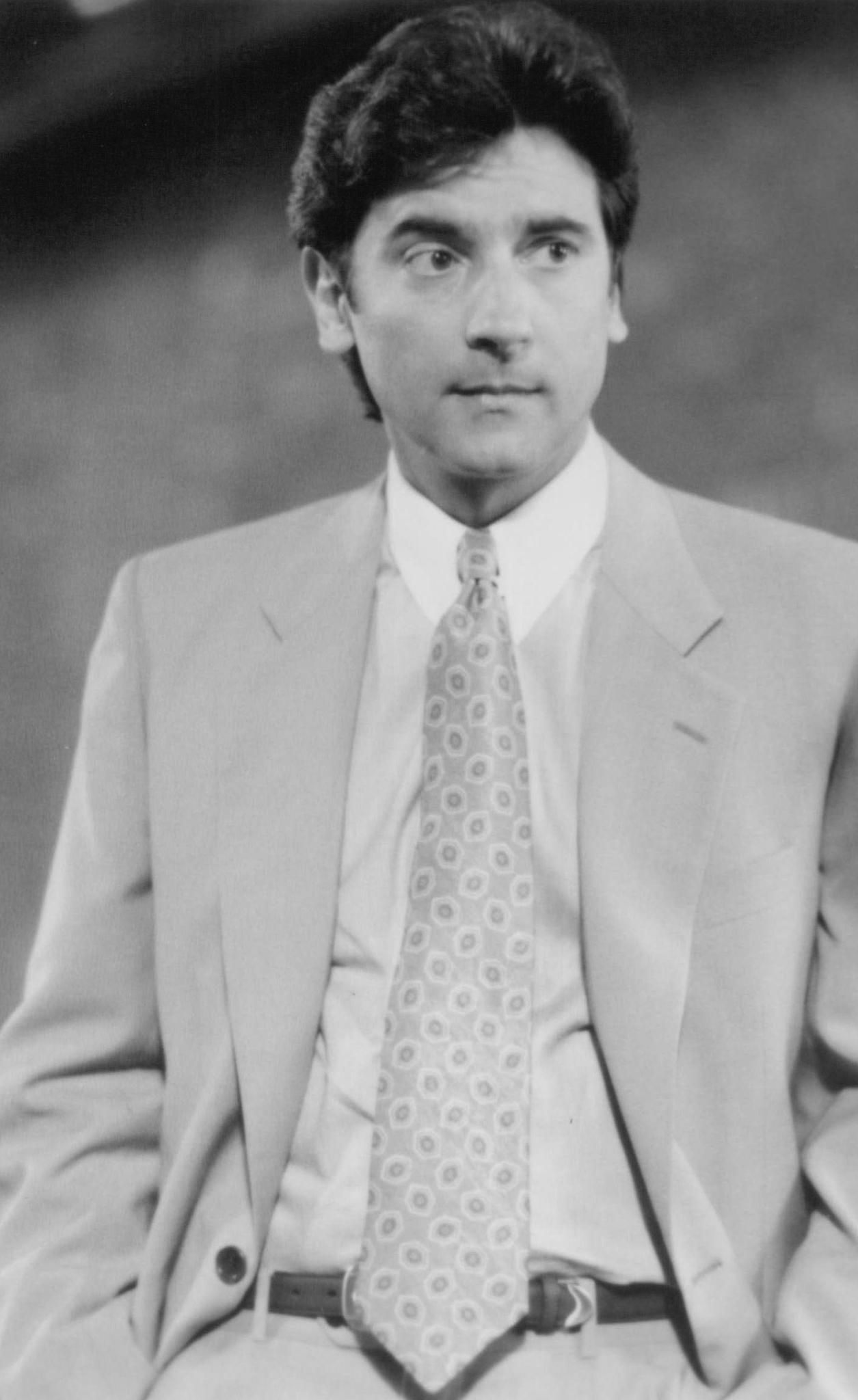Ellen Griffin Dunne - A Life Of Advocacy And Remembrance
Sometimes, a person's life takes a turn that shapes not just their own path, but the paths of many others. For Ellen Griffin Dunne, her journey became one of powerful advocacy, born from a profound personal sorrow. Her story, you see, is a compelling example of how someone can transform deep hurt into a force for good, reaching out to offer comfort and a voice to those who might otherwise feel completely alone.
This remarkable woman, known to her close friends as Lenny, found herself in a place no parent ever wishes to be. Yet, from that difficult spot, she managed to build something truly meaningful. Her work helped countless individuals and families who had experienced the unthinkable, offering them a sense of community and purpose in the face of immense pain. It's almost as if her own suffering gave her a special insight into what others needed.
Her efforts, you know, weren't just about offering support; they were about bringing about real change. She became a champion for victims, making sure their concerns were heard and their experiences acknowledged. It’s a story that, in some respects, shows the incredible resilience of the human spirit and the lasting impact one determined person can have on the wider world.
Table of Contents
- Ellen Griffin Dunne - A Biographical Sketch
- What Inspired Ellen Griffin Dunne's Advocacy?
- The Early Years and Family Ties of Ellen Griffin Dunne
- How Did Ellen Griffin Dunne Shape Victim Support?
- The Foundation of Justice for Homicide Victims by Ellen Griffin Dunne
- Who Was Ellen Griffin Dunne's Family?
- What Were Ellen Griffin Dunne's Health Challenges?
- How Is Ellen Griffin Dunne Remembered?
Ellen Griffin Dunne - A Biographical Sketch
Ellen Beatriz Griffin Dunne was, in essence, an American activist whose life took on a very specific purpose after a terrible event. She was born in Tucson, Arizona, back on January 28, 1932. Her path crossed with Dominick Dunne, a well-known writer and journalist, and they became husband and wife. She was, you know, a central figure in her family, a mother to two sons, Griffin and Alex, and a daughter, Dominique.
Her life, while seemingly quite private for a time, changed dramatically in 1982. This was the year her daughter, Dominique Dunne, an actress, was murdered. That tragedy, arguably, redirected Ellen's entire focus. It compelled her to step into a public role she might never have imagined for herself. She became a vocal advocate for the rights of those whose loved ones had been violently taken away, and this is, in fact, how many people remember her most vividly.
She established an organization called Justice for Homicide Victims, an effort that really grew from her own deep grief and desire to help others. This work, which was quite demanding, continued for many years. She received recognition for her dedication, including the Crime Victims Award in 1989. Ellen Griffin Dunne passed away on January 9, 1997, in Nogales, Arizona, leaving behind a significant legacy of compassion and action.
Here are some personal details and bio data for Ellen Griffin Dunne:
| Full Name | Ellen Beatriz Griffin Dunne |
| Born | January 28, 1932, Tucson, Arizona, USA |
| Died | January 9, 1997, Nogales, Arizona, USA |
| Spouse | Dominick Dunne |
| Children | Dominique Dunne, Griffin Dunne, Alex Dunne |
| Known For | Activist, Founder of Justice for Homicide Victims |
| Notable Recognition | Crime Victims Award (1989) |
What Inspired Ellen Griffin Dunne's Advocacy?
It's fair to say that some of the most profound changes in a person's life happen because of deeply personal experiences. For Ellen Griffin Dunne, the spark for her activism was, quite literally, a heartbreaking one. The loss of her daughter, Dominique, in 1982, was a moment that, you know, altered the course of everything for her. Before this, she lived a life that, while perhaps not public, was certainly full with family and personal pursuits.
Her daughter's death was a brutal shock, a moment of immense pain that, in a way, opened her eyes to a particular need in the world. She saw the lack of support and the struggle that families faced after such a tragedy. This personal anguish, therefore, transformed into a powerful drive to make a difference for others who found themselves in similar, terrible circumstances. It was a clear call to action, really.
Interestingly, her connection to the victims' rights movement was also shaped by someone else who had experienced a similar kind of loss. Sharon Tate's mother, Doris Tate, reached out to Ellen Griffin Dunne after Dominique's passing. Doris, who had already been through her own unspeakable tragedy, contacted Ellen about joining a support group for parents whose children had been murdered. This connection, you see, provided Ellen with a pathway into a community of shared experience, giving her a sense of direction for her burgeoning activism.
The Early Years and Family Ties of Ellen Griffin Dunne
Before her life became so centered on advocacy, Ellen Beatriz Griffin Dunne had a life that was, in some respects, quite conventional. Born in Arizona, she grew up and eventually married Dominick Dunne. Their family life, like many, had its own rhythm and story. They had three children, two sons, Griffin and Alex, and a daughter, Dominique. Griffin Dunne, for instance, born in 1955, would go on to become a producer, actor, and writer, much like his father. His early life, you know, involved growing up mostly in Los Angeles, then schooling in Colorado, before he moved back to New York in the late 1970s. This family background, with its connections to the entertainment world and a focus on storytelling, probably gave Ellen a unique perspective on life.
The family, in many ways, was a unit that valued connection and shared experiences. Dominick Dunne, her husband, was a prominent figure, and their lives were, arguably, woven into a particular social fabric. Ellen, as the mother, played a central role in raising her children. It’s important to remember that, even before the tragedy, her life was full of these personal relationships and responsibilities. Her children's paths, including Dominique's own budding acting career, were very much a part of her daily existence. The closeness of her family, therefore, made the subsequent loss all the more devastating, but also, in a way, provided the very foundation for her later work.
How Did Ellen Griffin Dunne Shape Victim Support?
The landscape of victim support, as we know it today, owes a good deal to individuals like Ellen Griffin Dunne. Her personal experience of profound loss, as we discussed, didn't just lead to private grief; it compelled her to take action that, you know, genuinely changed how society thought about and assisted those impacted by violent crime. She wasn't content to simply mourn; she wanted to create something lasting and helpful for others. This drive, therefore, helped shape the very idea of organized support for victims.
Her approach was quite direct: identify a need and then work to fill it. She saw that families of homicide victims often felt isolated and unheard, struggling to deal with both their emotional pain and the practicalities of the justice system. So, her efforts focused on building a bridge, a way for these families to find each other and to collectively advocate for their rights. This was, in essence, a pioneering spirit at work, creating a structure where one hadn't really existed in a cohesive way before. She helped move the conversation from private sorrow to public action, ensuring that victims' voices became a recognized and important part of the legal and social dialogue.
Her work, you know, extended beyond just forming a group. It was about creating a movement. She gave people a sense of collective power, showing them that by coming together, they could push for changes in laws and procedures that would offer more protection and support. This was, arguably, a significant shift in how victims were perceived – not just as passive recipients of tragedy, but as active participants in seeking justice and healing. She helped instill a sense of dignity and agency in a community that had often been overlooked, truly making a difference in the lives of many.
The Foundation of Justice for Homicide Victims by Ellen Griffin Dunne
After the murder of her daughter, Dominique, Ellen Griffin Dunne found herself in a place of immense pain, a feeling that, you know, many people might retreat from. Instead, she channeled that anguish into a powerful purpose: the establishment of Justice for Homicide Victims. This organization was not just a name; it was a concrete response to a deeply felt need. She envisioned a place where families who had experienced the violent loss of a loved one could find support, understanding, and a collective voice. It was, in a way, a testament to her resilience and her determination to ensure that her daughter's death, and the deaths of others, would not be in vain.
The founding of this group was a significant step. It meant creating a formal structure to address the needs of victims' families, needs that often went unmet by traditional systems. She worked to bring people together, to share experiences, and to advocate for changes in the legal system that would better serve those affected by violent crime. This involved, in some respects, educating the public and policymakers about the specific challenges faced by these families. Her efforts were, very clearly, about turning personal grief into a public service, providing a beacon of hope for others caught in similar circumstances.
Her dedication to Justice for Homicide Victims was recognized at a very high level. In 1989, President George H.W. Bush acknowledged her advocacy work, presenting her with the Crime Victims Award. This award was, you know, a clear acknowledgment of the profound impact she had made. It highlighted her tireless efforts and the importance of the organization she had brought into being. The foundation of Justice for Homicide Victims by Ellen Griffin Dunne stands as a lasting monument to her ability to transform personal tragedy into a force for widespread positive change, truly making a mark on the world of victim advocacy.
Who Was Ellen Griffin Dunne's Family?
Ellen Griffin Dunne's life was, in many ways, deeply intertwined with her family. She was married to Dominick Dunne, a figure who became quite well-known for his writing and journalism, especially his coverage of high-profile trials. Their life together, you know, was certainly one that had its share of public attention due to Dominick's profession. They had three children who grew up to pursue their own paths: Griffin, Alex, and Dominique. Griffin Dunne, as we know, became an actor, producer, and writer, carving out his own respected career in the entertainment world. Dominique, tragically, was also an actress, whose promising career was cut short.
The family unit, including Dominick and Ellen, and their sons Griffin and Alex, along with their daughter Dominique, remained a very important part of their story, even after Dominique's passing. Her memory, as a matter of fact, continued to be kept alive by them. Griffin Dunne, in particular, has spoken about his family in his writings, including a forthcoming memoir, "The Friday Afternoon Club." This book, you know, shares memories of Dominique, Dominick, and other family members, including the well-known writer Joan Didion, who was also connected to the family through marriage to John Gregory Dunne, Dominick's brother. This suggests a family that, despite its challenges, maintained strong bonds and a shared narrative.
The family's story is, in some respects, one of creativity and public life, but also one of profound personal challenge. Griffin Dunne's memoir, for example, opens with a very difficult scene: his mother, Ellen, being woken up in the middle of the night by a detective with terrible news. This shows, arguably, the deep impact that the family's experiences had on each member. The book also touches upon growing up in a family of storytellers, their complex relationship with fame, and the trauma they experienced after Dominique's murder. This all points to a family that, while perhaps in the public eye, navigated very real and very human experiences together, with Ellen Griffin Dunne at its heart.
What Were Ellen Griffin Dunne's Health Challenges?
Beyond the immense emotional and advocacy work that defined much of her later life, Ellen Griffin Dunne also faced significant personal health challenges. She suffered from multiple sclerosis, a condition that, you know, can be quite debilitating, starting in 1975. This meant that for many years, even before the tragedy that spurred her activism, she was dealing with a chronic illness that affected her physical well-being. It’s a fact that, in a way, makes her subsequent dedication to victim's rights even more remarkable.
Despite the difficulties posed by multiple sclerosis, Ellen, or Lenny as her friends affectionately called her, did not let her health struggles deter her from her mission. She continued to be a very active voice for victims. This disease, you see, often brings with it a range of physical symptoms that can make daily life quite hard, yet she persisted in her efforts to help others. Her determination, therefore, was quite strong, pushing past her own physical limitations to serve a greater purpose.
Later in her life, she made a move to Nogales, Arizona. Here, she built a home on her parents' ranch. This move, perhaps, was a way to find a more peaceful setting while continuing to manage her health. Her life, therefore, was a blend of profound personal challenges, both emotional and physical, alongside an unwavering commitment to advocacy. It speaks to a deep inner strength that allowed her to contribute so much, even while facing her own significant obstacles.
How Is Ellen Griffin Dunne Remembered?
Ellen Griffin Dunne's memory lives on through the impact she had on countless lives and the organization she brought into being. She is remembered, first and foremost, as an American activist who, you know, truly made a difference for families affected by violent crime. Her decision to found Justice for Homicide Victims after her daughter Dominique's murder in 1982 solidified her place as a champion for those in need. This act of turning personal sorrow into public service is, arguably, one of the most powerful ways she is recalled.
People also remember her through the continued work of Justice for Homicide Victims, which serves as a lasting symbol of her efforts. The Crime Victims Award she received in 1989 further cements her legacy as a significant figure in the victim's rights movement. Her story is, in some respects, a source of inspiration, showing how one person's courage and determination can create a ripple effect of support and change for many others facing similar hardships. She is recalled as someone who genuinely cared and acted on that care.
Her family, too, plays a crucial role in keeping her memory alive. Her son, Griffin Dunne, for instance, has shared memories of his mother and sister in his writings, including his recent memoir. These personal accounts offer a more intimate look at Ellen, portraying her not just as an activist, but as a mother and a woman who faced her own challenges with grace. The family, including her parents, Dominick and Ellen "Lenny" Dunne, and brothers Griffin and Alex Dunne, continued to keep Dominique's memory alive after her death, which, you know, also serves to honor Ellen's own enduring spirit and the love that bound them together. Her impact, therefore, is remembered both through her public achievements and the private affections of those who knew her best.

Pictures of Griffin Dunne

Pictures of Griffin Dunne

Pictures of Griffin Dunne